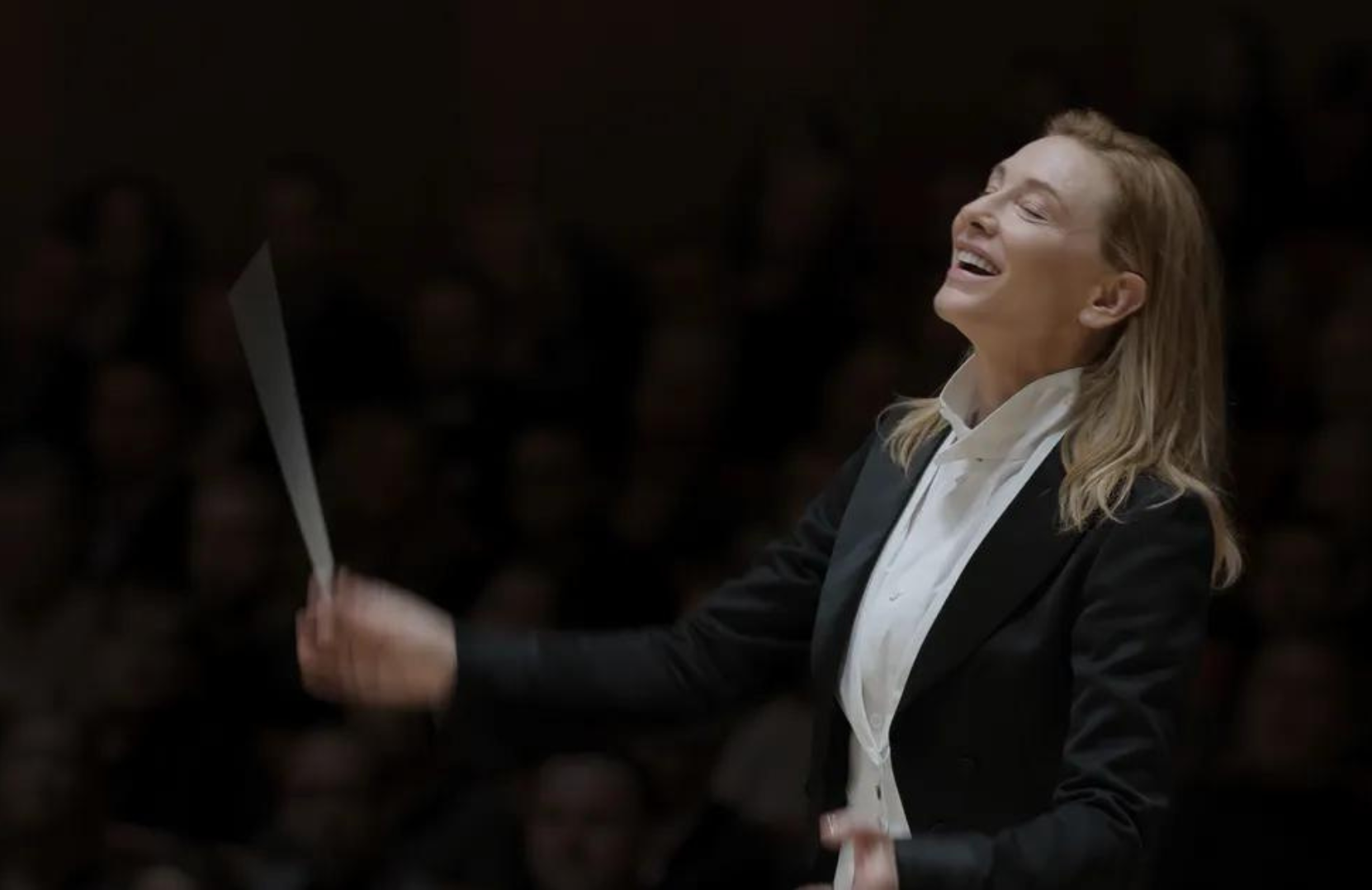Spoiler Warning: This review contains some revealing information about scenes, and discusses some major points presented in the film.
Written, directed, and produced by Todd Field, TÁR is a whopping almost-three-hours of brilliant music, breathtaking acting, and psychological torture.. Lydia Tár (Cate Blanchett) is the accomplished composer-conductor of an iconic German orchestra. With her talented violinist wife, Sharon (Nina Hoss), and adopted daughter Petra (Mila Bogojevic), she seems to have the perfect privileged — and yearned-for — life, but there are some dark parts that are kept a secret and for good reason.
Although the film is a psychological drama, TÁR plays out like a thriller through its eerie scenes of isolation and violent screams, and the lingering of ticking metronomes — all revealed to later be a part of Tár’s emotional hallucinations.
If Tár’s slicked- back hairstyles and custom-fitted suits don’t tell you enough about her, Blanchett’s sublime interpretation of a powerful woman will. Her dogged personality makes for a striking maestro on the podium, but a complete and utter narcissist in her everyday life. And not to mention, she’s an absolute mess, minutes away from having either an aggressive rant about Marxism or Bach’s patriarchal position, or on the verge of a mental breakdown in almost every scene.
This film is one of Blanchett’s best performances. She plays a superb representation of a woman beginning to crack under pressure yet too headstrong to allow herself to fully spiral out of control. The role depicts a compelling yet sociopathic musician whose unforgivable actions are somehow empathized with. It isn’t until the end that Tár herself begins to stumble tremendously from grace and, finally, crashes into her inevitable fate.
From the very first scene, something about her character’s storyline seemed off to me. It wasn’t until the end of the film, when her true story was revealed, that I understood the importance of her character’s emotional arc. To be blunt, the first hour was really boring. I kept thinking, “Why was this film deemed one of the year’s best movies? It’s just about a heartless lesbian in the music industry.” But after the halfway mark, I couldn’t look away from the screen. I was literally sitting on the edge of my seat, shovelling popcorn into my mouth and worrying about what was going to happen to Tár.
The ending caught me off guard and sparked an unexpected eureka moment for me. Everything in this film is thought out and intentional, from the symbolism in numbers to the consistencies in Tár’s romantic partners.
This psychological drama is a masterful piece of work. The film’s incorporation of common themes like the #MeToo movement and cancel culture are scarily accurate as it touches on issues of grooming, the intensities of being in an orchestra, and how the actions of your past can come back to haunt you in daunting ways.
From disturbing hallucinations to her deep-rooted anger issues, Blanchett’s Golden Globe-winning performance is truly stunning. Her character’s comeuppance, the film’s cinematography and beautifully done dolly shots, and the hard-hitting themes shown in each scene make this film a revelation. And much like Lydia Tár herself, it’s full of power and seduction. There’s only one word to describe how this film was created: properly.





0 Comments